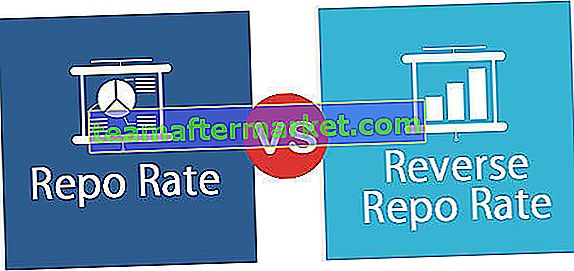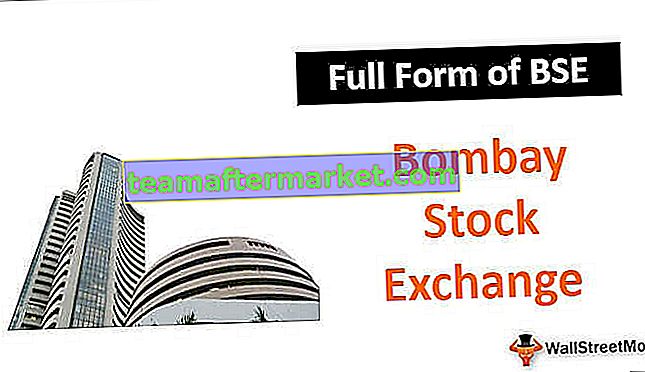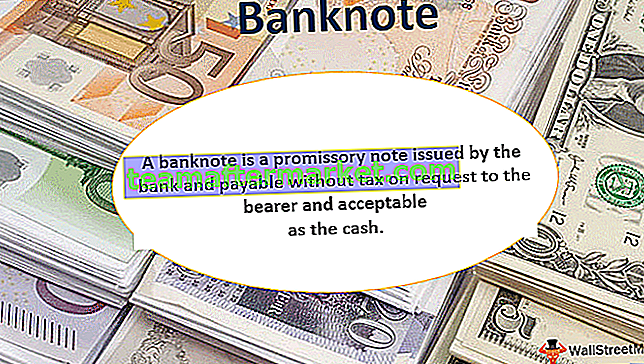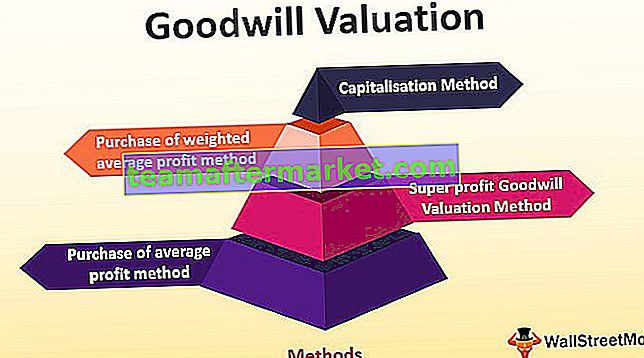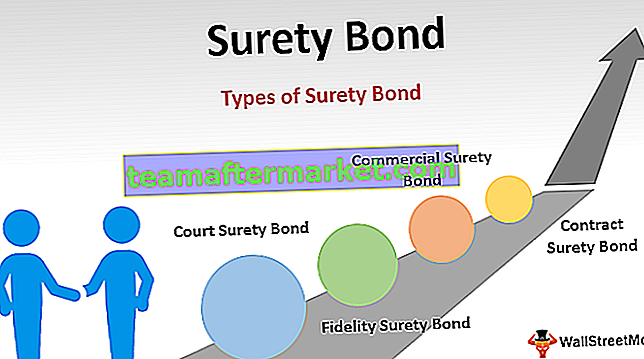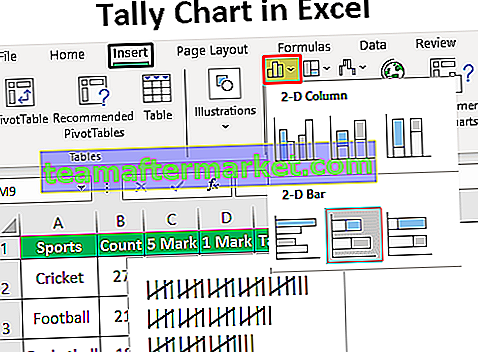Examen CFA
Il existe de nombreux diplômes et diplômes qu'un professionnel de la finance peut détenir, cependant, il n'y a aucun autre que Chartered Financial Analyst® ou CFA® qui gagne le respect ou qui est si rigoureusement axé sur le développement des compétences et des connaissances en matière d'investissement. Le magazine The Economist a qualifié la charte CFA® de «l'étalon-or», écrivant que:
[Le] diplôme équivaut à peu près à un diplôme spécialisé en finance de troisième cycle, comprenant un mélange d'économie, d'éthique, de droit et de comptabilité… Alors qu'il existe des dizaines de milliers de diplômes en finance disponibles dans le monde, allant de l'excellent au sans valeur, il existe est un seul CFA®, géré et examiné par une association américaine de professionnels de la finance, le CFA® Institute.
Mon parcours vers l'obtention de ma charte CFA® a été passionnant, enrichissant et stimulant. Il y a eu beaucoup de hauts et de bas - j'ai passé le CFA® Level 1 et le CFA® Level 2 à la fois, cependant, le CFA® Level 3 était difficile à casser. Il m'a fallu 3 tentatives pour réussir le niveau 3 du CFA®. La charte CFA® a été particulièrement bénéfique pour ma carrière d'analyste en recherche d'actions. Plus récemment, j'ai reçu une nouvelle incroyable selon laquelle mon jeune frère Neeraj Vaidya (travaille avec le PDG d'une entreprise mondiale et vit à Dubaï) a également réussi l'examen CFA® Level 3. Il a hâte de postuler à la Charte CFA®. Je suis sûr qu'il a une belle carrière à venir.
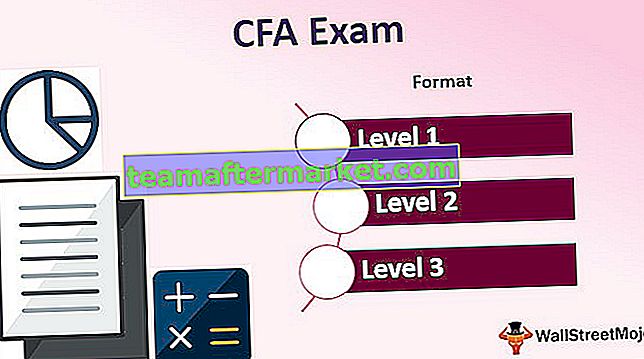
Vous vous présentez à l'examen CFA® Level 1? - Jetez un œil à ces 70 heures et plus de didacticiels de formation CFA® niveau 1
Aussi, ne manquez pas CFA - Dates et horaires importants
Si certains d'entre vous sont confus entre CFA® et FRM, voici une infographie rapide qui peut vous aider un peu - CFA® vs FRM
J'ai formé et encadré des centaines d'étudiants pour l'examen CFA® et j'espère maintenant faire connaître ce programme le plus précieux du CFA® via mon blog. Cet article se concentre sur les écrous et boulons de l'examen CFA® -
Qu'est-ce que l'examen CFA?
Le programme CFA® (Chartered Financial Analyst), administré par le CFA® Institute, propose un programme d'études et d'examens de niveau supérieur conçu pour élargir vos connaissances de travail et vos compétences pratiques liées à la prise de décision en matière d'investissement.
| Les rôles | Gestion de portefeuille, Gestion de patrimoine, Prise de décision d'investissement, Analyse d'investissement |
| Examen | Le programme CFA® consiste en une série de trois examens (niveaux I, II et III). |
| Dates des examens CFA® | CFA® Niveau 1 - conduit deux fois par an (1ère semaine de décembre et 1ère semaine de juin); CFA® Level 2 & 3 réalisé une fois par an (1ère semaine de juin) |
| L'accord | Chacun des trois niveaux du programme CFA® s'appuie sur le précédent et chacun se termine par un examen d'une journée complète de six heures. Les candidats doivent réussir chaque examen avant de passer au niveau supérieur suivant, mais sont autorisés à répéter un examen s'ils échouent. |
| Admissibilité | Vous devez avoir l'un des éléments suivants: Baccalauréat (ou équivalent) Être en dernière année du programme de licence Avoir quatre ans d'expérience professionnelle Posséder une combinaison de travail professionnel et d'expérience universitaire totalisant au moins quatre ans |
| Critères d'achèvement du programme | Réussir les trois examens; Avoir quatre ans d'expérience professionnelle dans le processus de prise de décision d'investissement; Rejoignez le CFA® Institute en tant que membre régulier |
| Heures d'étude recommandées | Un minimum de 300 heures de préparation par niveau d'examen CFA® est recommandé. |
| Que gagnez-vous? | Charte CFA® |
Pourquoi passer l'examen CFA®?
Compte tenu du temps, de l'argent et des efforts nécessaires, le titre CFA® vaut-il vraiment la peine d'être poursuivi? Voici les principales raisons pour lesquelles vous devriez poursuivre CFA® -
- CFA® est la désignation mondiale la plus reconnue pour les professionnels de la finance à travers le monde.
- Non seulement les employeurs mais aussi les clients considèrent les CFA® Charterholders comme des experts en finance.
- L'avancement de carrière grâce à la désignation CFA® n'est pas une évidence. Ce programme est extrêmement utile dans la banque d'investissement, la gestion de portefeuille, la recherche d'investissement et l'analyse de sécurité, etc.
- Une enquête récente du CFA® Institute a révélé que les titulaires de la charte CFA® travaillent principalement en tant que gestionnaires de portefeuille (22%), analystes de recherche (14%) et directeurs généraux (7%).

source - Institut CFA®
De plus, en juillet 2016, le CFA® Institute a mené une enquête auprès des candidats CFA® et a trouvé les raisons ci-dessous comme principale motivation pour passer cet examen -
- 37% passent cet examen en raison des opportunités d'avancement de carrière qui s'ouvrent
- Un autre 20% le font pour atteindre un niveau de connaissances plus élevé
- 10% pensent que cela améliore les chances d'obtenir un emploi.

Vous pouvez télécharger les détails complets de l'enquête ici - CFA® Survey
Format d'examen CFA®
Le tableau ci-dessous présente des domaines importants de l'examen CFA®.
| Examen CFA® | CFA® niveau 1 | CFA® niveau 2 | CFA® niveau 3 |
| Met l'accent sur | Concepts de base en finance | Équité, revenu fixe et comptabilité | Application de gestion de portefeuille |
| Format d'examen | Choix multiple avec 3 choix | Ensemble d'objets / mini-étude de cas | Ensemble d'objets + essai |
| Des questions | 240 MCQ | 20 ensembles d'articles | 10 ensembles d'objets + 12 essais |
| Session matinale | 120 QCM | Ensembles de 10 articles | 12 essais |
| Session de l'après-midi | 120 QCM | Ensembles de 10 articles | Ensembles de 10 articles |
| Durée | 6 heures | 6 heures | 6 heures |
Faits saillants sur le format d'examen CFA®
Examen CFA® Niveau 1
- Cet examen se concentre principalement sur le développement de concepts de base en finance.
- Le format des questions à choix multiples facilite la tâche des candidats à l'examen, cependant, il faut noter qu'en moyenne, vous disposez d'environ 1,5 minute par question.
- Pas de marquage négatif
Examen CFA® Niveau 2
- Le format de l'examen est constitué de mini-cas d'une longueur moyenne de 1,5 page
- Chaque ensemble d'items ou mini-cas a six questions chacun, les réponses à chaque question peuvent dépendre de votre question précédemment répondue.
- Pas de marquage négatif
Examen CFA® niveau 3
- La chose clé à noter que la session du matin est un format de type essai où les candidats doivent résoudre les études de cas et écrire les réponses appropriées
- La session de l'après-midi est similaire au format du CFA® Niveau 2 où il y a des mini-études de cas avec réponses aux questions à choix multiples
- Pas de marquage négatif
Poids / répartition des examens CFA®
Vous trouverez ci-dessous les domaines thématiques CFA® (2020) dans chaque niveau.

CFA® niveau 1
- L'objectif principal de l'examen CFA® niveau 1 est de créer une base solide en finance.
- Veuillez noter que les rapports et analyses financiers, l'éthique et l'analyse quantitative représentent près de 50% de la pondération des examens. Si vous obtenez de bons résultats sur ces 3 sujets, il y a de bonnes chances de réussir l'examen CFA® Niveau 1. Cependant, d'autres sujets ne peuvent pas être ignorés, dont certains sont plus faciles et vous pourrez peut-être y marquer de bons points.
- CFA® Level 1 examination is relatively easier for Finance Graduates and those with prior knowledge of accounting.
- Non-finance graduates (engineers, science, arts, etc) may find Financial Reporting & Analysis a bit challenging. However, you must not worry too much. If you spend the appropriate time on this topic, you should sail through. You can have a look at this finance for non-finance tutorial
- As an Engineer and an MBA Finance, I found Financial Reporting & Quantitative Analysis and Quantitative Analysis a bit easier to study. However, I must confess, I struggled a lot with Ethics and Economics.
CFA® Level 2
- CFA® level 2 is slightly difficult exam as compared to CFA® level 1 because of 2 reasons a) curriculum is now tougher as compared to CFA® Level 1 and b) competition is between serious candidates who have passed Level 1 examination.
- Four topics – Ethics, Financial Reporting & Analysis, Equity Investment, and Fixed Income represent approx. 50%-80% of the weightage.
- The major change in the pattern is that there is a 21 item set (each around 400-800 words) with six multiple-choice questions in each session (Morning & Afternoon Session). These six questions may be dependent or independent of each other.
CFA® Level 3
- The main trick in CFA® Level 3 examination is the Essay Type Question Paper. This is the first time in the CFA® examination that you are expected to write essays.
- The backbone of the Essay Type Question Paper is Portfolio Management (representing 45% weightage). It is common wisdom that the Essay Type Question paper creates a make or break situation. It is found that the Afternoon Exam that consists of Item Set questions is relatively easier for most of the candidates
- I am a typical laptop & a gadget guy and don’t use much of a pen and notebook. For this exam, I picked my pen for serious handwriting after almost 5 years and realized that my handwriting was barely legible. I had to practice handwriting a bit to cross the minimum legibility benchmark. Even then, I recall that my hands were hurting after the Morning session, so better practice (hand) writing.
CFA® Examination Fees
Below is the examination fees for the CFA® June 2020 Exam (Levels I, II, III)
CFA 2020 Exam Registration Fees and Deadlines | ||
| Registration Deadlines | New Candidate | End Deadlines |
| Enrollment Fee | Total:- US$ 700 | ends 2 October 2019 |
| Standard registration fee | Total:- US$ 1000 | ends 12 February 2020 |
| Late registration fee | Total:- US$ 1,450 | ends 11 March 2020 |
- There is a first-time enrollment fee of $700. Also, note that it is much cheaper to register for the exam early. The exam fees of 3rd Deadline ($1,450) costs almost twice that of the First Deadline ($700).
CFA® Results & Passing Rates
CFA® results are usually announced after eight weeks of the CFA Exam date. CFA® Level 1 and 2 exam results are available both on the CFA® Institute website and through as emails. CFA® Level 3 results are available in ten weeks to post the exam day.
Out of every 100 CFA® Candidates, only 15 candidates will finally crack it!
Before we discuss the individual level the CFA® Exam passing rates, it will be interesting to look at the overall completion rate. Completion rate (%) is the number of candidates who have passed cumulatively CFA® level 3 exams divided by the total number of cumulative candidates who have ever attempted CFA® examination. This number provides us a broad idea of how many finally pursued and cleared all 3 levels
- Since inception, a total of 15.4% CFA® Candidates passed the CFA® Level 3 exams
- Most recently (2005-2014A), the total completion rate of 14.6% was observed
- This implies out of every 100 CFA® candidates, about 15 CFA® candidates will finally pass CFA® Level 3, however, the remaining 85 candidates may eventually opt out.

Now let us look at the passing rates for each Level
CFA® Level 1 Exam Passing rate is closer to 45%
- Past 10 years saw that CFA® Level 1 examination passing rate was in the range of 43% to 45%, with an average passing rate of 43%
- The average passing rate for the December examination was 43%
- The average passing rate for the December 2018 examination was 45%
- The average passing rate for the June 2014 examination was higher at 40% (interesting!)
- The average passing rate for CFA 2015 you need Level 1- 42%, level 2- 46% and level 3- 54%.
- The average passing rate for CFA 2016 you need CFA Level 1- 43%, CFA level 2- 46% and for CFA level 3- 54%
- The average passing rate for CFA 2017 you need CFA Level 1- 43%, CFA level 2- 47% and for CFA level 3- 54%
- The average passing rate for CFA 2018 you need CFA Level 1- 43% CFA level 2- 45% and for CFA level 3- 56%
- The average passing rate for CFA 2019 you need CFA Level 1- 41% CFA level 2- 44% and for CFA level 3- 56%

CFA® Level 2 Exam Passing rate is closer to 44%
- Past 10 years saw that CFA® Level 2 examination passing rate in the range of 32% to 56%, with an average passing rate of 44%
- June 2014 examination passing rate was the highest at 46% in the past 8 years
- To clear CFA 2015 you need Level 1- 42%, level 2- 46% and for level 3- 54%.
- CFA 2016 you need CFA Level 1- 43%, CFA level 2- 46% and for CFA level 3- 54%
- CFA 2017 you need CFA Level 1- 43%, CFA level 2- 47% and for CFA level 3- 54%
- CFA 2018 you need CFA Level 1- 43%, CFA level 2- 45% and for CFA level 3- 56%
- CFA 2019 you need CFA Level 1- 41%, CFA level 2- 44% and for CFA level 3- 56%

You have a 50:50 chance of passing CFA® Level 3 Exam
- Past 10 years saw that CFA® Level 3 examination passing rate in the range of 50% to 76%, with an average passing rate of 56%
- The 14-year average pass rate for all three levels of CFA (from 2003 to 2016) was 52%
- The CFA® Level 3 (June 2018) examination passing rate is 56%.
- The CFA® Level 3 (June 2019) examination passing rate is 56%.

CFA® Curriculum vs Schweser?
To answer the above question, let us first have a look at a high-level comparison between the two.
| Attribute | CFA® Curriculum Books | Schweser |
| Cost | $150 + shipping | $649 |
| Pages | 2600+ | 1000-1100 |
| Depth of Coverage | In-depth | Summarized |
| Mock Tests | 1-2 | 6 |
| End of Chapter Questions | Yes | Yes |
| Question Bank | No | Yes |
Please note that there are many packages available at Schweser. For the above comparison, I have included the price of their Essential Self-study package. Before I attempt to answer the above question, the most important question you must ask yourself is how much time you intend (consider reality) to spend for CFA® Level 1 Examination. Your preparation (CFA® curriculum notes vs Schweser notes) will totally depend on the amount of time you are willing to spend.
Below are my set of tips that may prove useful (only applicable to CFA® Level 1 examination
If you have a 5-month Exam Preparation Time?
Let us face the truth, you do not have lots of time to prepare and pass this CFA® Level 1 examination. However, you have just enough time to give your best shot. With this, I recommend the following –
- Forget about the CFA® Curriculum Books. Just going by common wisdom shared on the majority of the CFA® forums, it takes around 200+ hours to go through the CFA® curriculum books (which obviously you are short of)
- Go through the Schweser Video Tutorials. This may take at max 20 hours and these are a good starting point to prepare yourself for the exam.
- Once you have looked at the videos, go through the Schweser notes in detail. Though these are the summary version of CFA® books, however, I feel they are sufficient enough to ensure that you pass the exam. Reading Schweser notes will take around 80 hours or so
- The remaining time (if any), you must spend on attempting as many Mock Papers as you can and concept revision.
- I had only 5 months for CFA® Level 1 exam preparation and used this strategy to pass CFA® level 1 examination.

If you have 200-250 hours for exam preparation?
If you can spend 200-250 hours preparing for the exam, then you will be in a dilemma – Should I touch CFA® curriculum books or should I look at Schweser notes or Both?
- Frankly speaking, you will have to decide either of the two, but not both. Either you can read through the CFA® curriculum books once (yes, only once!) or you can master Schweser by learning from their video tutorials, reading notes a couple of times, practicing mock papers, etc all in 200-250 hours
- My suggestion here would be to yet not touch the CFA® curriculum books and spend time on Mastering Schweser concept as per the time-table is given in the below graph

If you have the luxury to spend 300 hours?
If you have 300+ hours, then I would highly recommend a mix of CFA® Curriculum books as well as Schweser notes.
- The best way is to start with Schweser Video Tutorials and move to Schweser notes such that you ensure you have covered all important concepts from the point of view of exams.
- Thereafter, I would advise you to look at CFA® Blue Box Examples (discussed within the chapters) and then End of Chapter (EOC) Questions. This may take another 80-100 hours.

If you have less than 100 hours
- A piece of brutal advice, Go home! Do not try your luck. You would have already spent more than $1000 on registration of the exam. Why waste this attempt?
- Consider the withdrawal option if you have already registered for CFA® Exam. Withdrawal policy offered by CFA® institute may come handy. Click here for details.
Enrollment Requirements
To be eligible to enter the CFA® Program, there are two primary requirements –
- Have US Bachelor’s (Or Equivalent Degree) or be in the final year of your bachelor’s degree program at the time of registration
- or have four years of qualified, professional work experience (does not have to be investment-related)
- or a combination of work and college experience that totals at least four years.
- Please note that Part-time positions do not qualify , and the four-year total must be accrued prior to enrollment
- Have a Valid International Travel Passport – This is required for CFA® Exam enrollment and registration
Scholarship Opportunities
CFA® Institute provides two types of scholarships –
Access Scholarship
- This is a need-based scholarship designed for those who are not able to afford the full CFA® program fees.
- In addition to financial needs, there are other factors that are also considered like academic, professional or other accomplishments of the candidate, candidate’s interest in pursuing the CFA® charter, obstacles overcome by the candidate, etc.
- More than 2,600 Access Scholarships are awarded to CFA® Program applicants each calendar year.
Awareness Scholarship
- This is given to key influencers in academics and the financial community.
- This awareness scholarship is designed to raise awareness of CFA® Institute programs among key influencers by allowing certain strategically positioned groups and individuals to distribute and/or receive exam registrations at discounted rates.
For further details, you may refer to CFA® Scholarship Page
Useful Resources for CFA® Exam Prep
- CFA® Course of Study – CFA® Institute
- CFA® Level 1 Sample Material – Schweser
- CFA® Video Tutorials – Irafanulla
- CFA® Exam Information – Wikipedia
- CFA® Discussion Forum – AnalystForum
- CFA® vs FRM Exam
What next?
If you learned something new or enjoyed the post, please leave a comment below. Let me know what you think. Many thanks and take care. Happy Learning!
Useful Posts
- CFA Level 2 Exam
- CFA® and MBA
- CFA® and FRM comparison
- CFA® vs CFP Difficulty
“CFA Institute does not endorse, promote, or warrant the accuracy or quality of Wallstreetmojo. CFA® and Chartered Financial Analyst® are registered trademarks owned by CFA Institute.”

